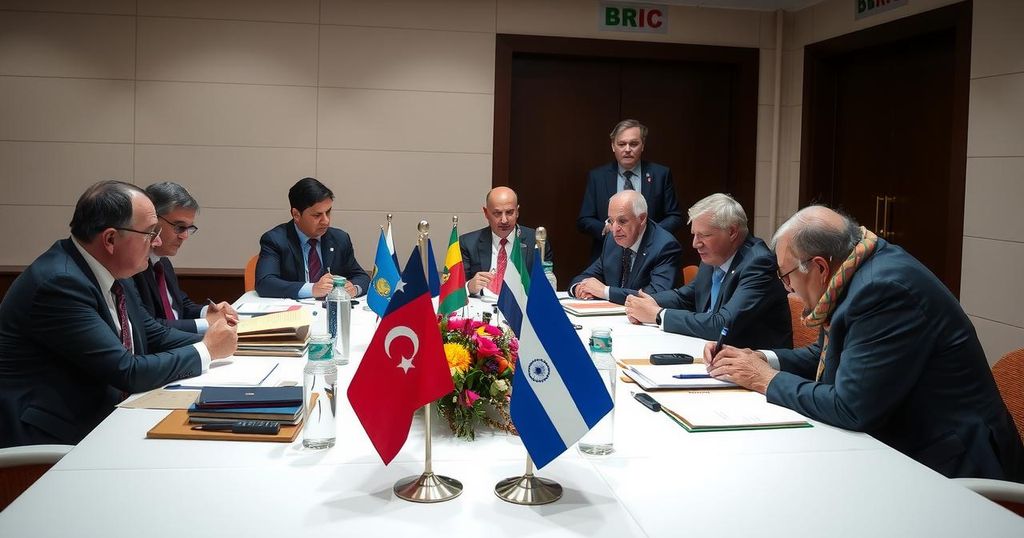Dilma Rousseff, chair of the BRICS New Development Bank, discussed Uruguay’s potential membership with President-elect Yamandú Orsi, emphasizing the bank’s favorable lending terms. Rousseff highlighted that the membership process is nearly complete but still requires congressional approval. Orsi expressed interest but stated that Uruguay will not pursue BRICS bloc membership. He stressed the importance of exploring financial opportunities amidst complex global conditions.
Former Brazilian President and current chair of the BRICS New Development Bank, Dilma Rousseff, encouraged Uruguay to become a member of the NDB during discussions with President-elect Yamandú Orsi on December 27. Rousseff underscored the advantageous lending conditions provided by the NDB, stating, “Uruguay is perfectly positioned to be given credit.” She pointed out that, contrary to the US-backed International Monetary Fund (IMF), the NDB does not impose any macroeconomic conditions on its borrowers.
Rousseff noted that Uruguay’s accession process is nearing completion, having already received approval from the NDB’s board of governors, although it still requires the consent of various institutional entities, including Congress. The chairwoman emphasized the bank’s intent to expand beyond its founding members, stressing the importance of Uruguay’s participation, with plans to also reach out to other nations in Latin America, South Asia, and the Middle East.
While Orsi expressed interest in the NDB’s support, he clarified that Uruguay would not pursue membership within the BRICS bloc, following Argentina’s withdrawal after the election of President Javier Milei. The President-elect remarked that the NDB provides essential support to southern countries, especially in an increasingly complex global landscape. He indicated that Uruguay’s approach would be focused more on establishing a collaborative framework rather than seeking specific loans, and he plans to maintain dialogues with traditional financial institutions such as the Inter-American Development Bank.
Orsi articulated the necessity of not overlooking opportunities for resource acquisition and financing, stating, “Today’s world is complex and opportunities for resources, financing, and support should not be overlooked.” Alongside him were his incoming administration officials, including Presidential Secretary Alejandro Sánchez, who also serves as an advisor on international affairs during this critical transition period.
The BRICS New Development Bank (NDB), established in 2014 by Brazil, Russia, India, China, and South Africa, aims to provide financial support for development projects among emerging economies. The NDB differentiates itself from traditional lenders like the IMF by offering more favorable lending terms without imposing strict macroeconomic conditions. Uruguay’s potential membership in the NDB reflects a strategic shift towards establishing stronger ties with BRICS nations and enhancing regional cooperation in Latin America, particularly in response to global financial challenges. The recent meetings coincide with a broader agenda to expand the NDB’s influence and membership beyond its initial BRICS countries, indicating an intent to include more nations from South America and other regions, thereby reinforcing economic partnerships amidst shifting geopolitical landscapes.
In conclusion, Dilma Rousseff’s discussions with President-elect Yamandú Orsi highlight Uruguay’s prospective membership in the BRICS New Development Bank, amidst ongoing efforts to expand the bank’s influence in Latin America and beyond. While Orsi shows interest in the NDB’s supportive role, he clarified that Uruguay will not join the BRICS bloc, focusing instead on collaborative partnerships through various financial channels. The evolving financial landscape demands prudent resource management and strategic international alliances, underscoring the significance of dialogue between emerging economies.
Original Source: www.intellinews.com






